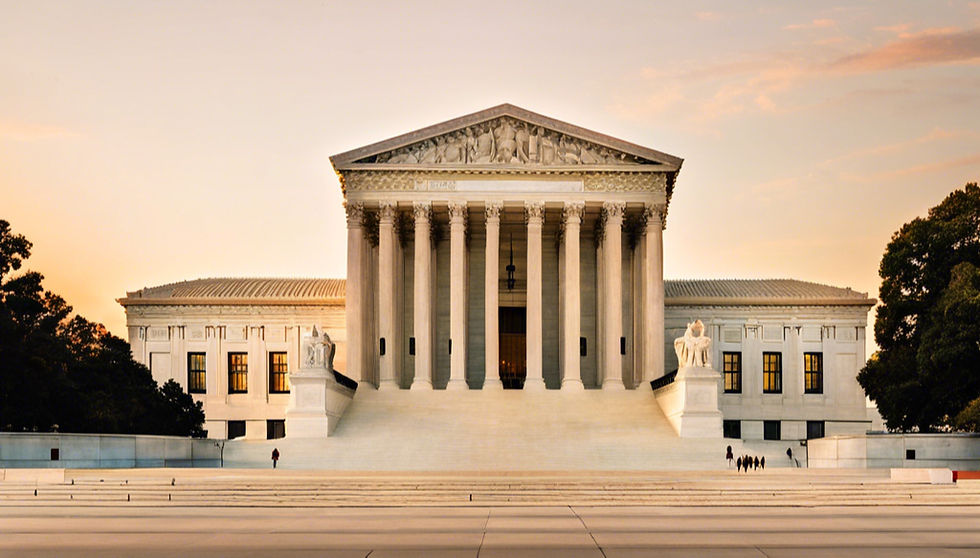Supreme Court Rules Trump Immune from Prosecution for Presidential Actions
- Al Morris

- Jul 1, 2024
- 2 min read
In a landmark decision on Monday, the U.S. Supreme Court ruled that former President Donald Trump cannot be prosecuted for actions taken within his constitutional powers as president, but he can be held accountable for private acts. The 6-3 ruling, written by Chief Justice John Roberts, marks the first recognition of presidential immunity from prosecution by the Supreme Court.

The court overturned a lower court’s decision that had dismissed Trump's claim of immunity from federal charges linked to his efforts to overturn the 2020 election results. The ruling came from the court's six conservative justices, while the three liberal justices dissented.
Trump, currently the Republican candidate for the 2024 presidential election, celebrated the ruling on social media, calling it a "BIG WIN FOR OUR CONSTITUTION AND DEMOCRACY."
Roberts wrote, "Under our constitutional structure of separated powers, the nature of presidential power requires that a former president have some immunity from criminal prosecution for official acts during his tenure in office." He emphasized that immunity is "absolute" for a president's core constitutional powers and "presumptive" for actions within the outer perimeter of official responsibilities.
The court analyzed four categories of conduct in Trump’s indictment: discussions with Justice Department officials after the 2020 election, alleged pressure on Vice President Mike Pence to block certification of Biden’s win, assembling fake pro-Trump electors, and conduct related to the January 6, 2021, Capitol attack. Trump was found absolutely immune for his conversations with Justice Department officials and presumptively immune regarding his interactions with Pence, but the other issues were sent back to lower courts.
Justice Sonia Sotomayor, in her dissent joined by Justices Elena Kagan and Ketanji Brown Jackson, criticized the majority for broadening the scope of the case unnecessarily, accusing them of undermining the principle that no one is above the law. She compared the ruling's specificity in defining rights to the court’s decision in Dobbs, which overturned the constitutional right to abortion.
Legal experts predict that sorting out the court's opinion and its application will delay any trial until after the 2024 election. Trump's trial had been scheduled for March 4 but has been postponed due to the immunity issue.
In Special Counsel Jack Smith's August 2023 indictment, Trump was charged with conspiring to defraud the United States, obstructing an official proceeding, and conspiring against the right to vote. Trump has pleaded not guilty and argues that his actions were part of his presidential duties.
The ruling raises significant implications for future presidential conduct and the scope of immunity. Federal prosecutors have accused Trump of pressuring officials to overturn election results and inciting the Capitol riot on January 6, 2021. Trump also faces state charges in Georgia and federal charges in Florida related to classified documents.
If Trump wins the 2024 election, he may attempt to end prosecutions against him or pardon himself for any federal crimes that the courts convict him of.




Comments